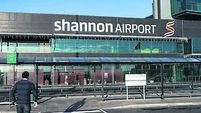Spiral in food exports drives encouraging trading balance

While the country’s trading figures have long been heavily reliant on pharma exports, the rise of the food sector is viewed as very positive for both Irish GDP and domestic employment.
Overall, Davy is predicting total Irish exports to grow by 3.5% this year and 4% in 2015. In the first half of the year, nominal pharma exports were up 5.9% on the year. Moreover, non-pharma exports were up 1.5% year-on-year, driven by a 10.2% rise in food exports.










